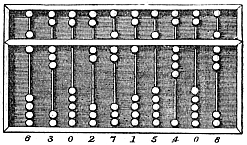The National Numeracy Challenge, organised by charity National Numeracy, plan to reach one million adults over a five-year period, starting with those at work, but with plans to expand in order to reach those not in employment or education.
Poor numeracy is a blight on individuals’ life chances and we believe that employees will be as keen as their employers to improve their skills. With 17 million people in need of help, this is just the beginning. Our initial targets are actually quite modest, but we are in this for the long term.
Chris Humphries, National Numeracy chair
UK government figures state:
- 17 million people of working age in England had at best the numeracy skills expected of children at primary school.
- over 8 million of these adults had the skills expected of 7-9 year-olds or younger.
The equivalent figures for literacy are 5 million and 2 million respectively.

The Challange
Employers will be asked to making a commitment to raise the skills of all their employees to at least Level 1: about the standards expected of 14-year-olds. In some sectors, employers may feel that Level 2 is a more appropriate target: equivalent to GCSE A*-C.
My personal opinion
As a mathematician I see a lot of interesting problems and rich structures within mathematics. However, this is not what the Challenge is talking about. Basic mathematics and as part of that numeracy, should be seen as a fundamental skill.
I am not talking about advanced calculus or noncommutative algebras, but the basic skills needed in everyday life. This includes simple things like making sure you can budget your money, read bus timetables, follow recipes in in cookbooks, understanding bills and so on.
I welcome any scheme that aids with the populous’ numeracy skills.
Link
